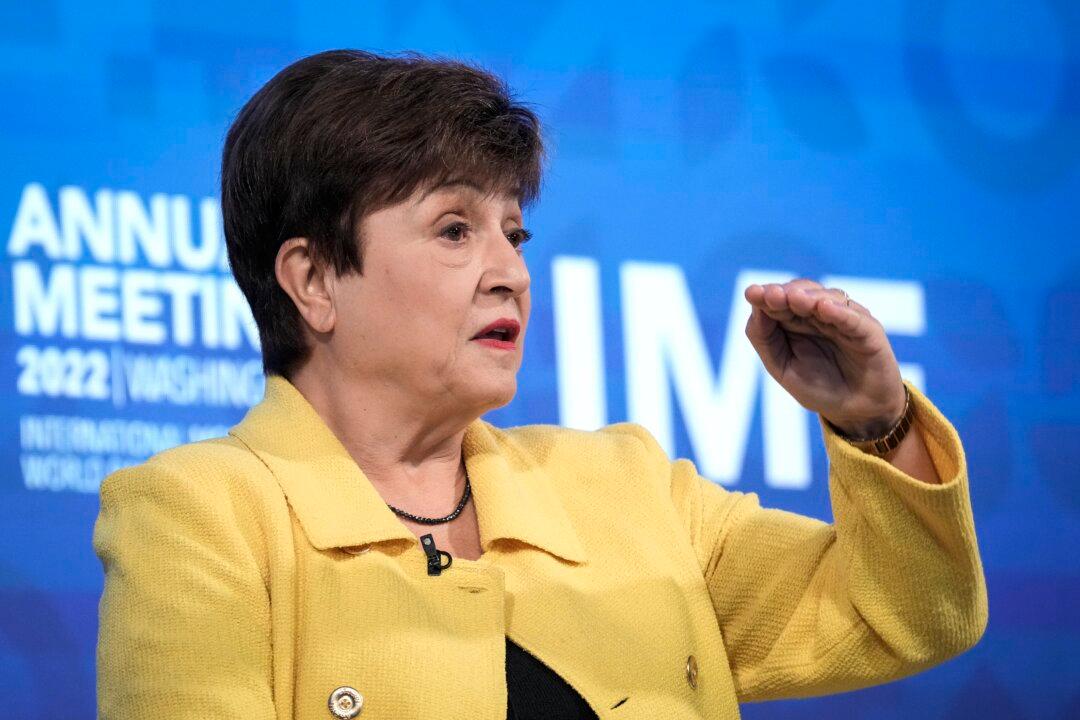The recent collapse of Silicon Valley Bank (SVB) and the rescue of Credit Suisse by rival UBS show that risks to global financial stability have increased, International Monetary Fund (IMF) chief Kristalina Georgieva said at a conference in Beijing on March 26.
Speaking at the 2023 China Development Forum in the capital, Georgieva warned that rapid interest rate hikes by the Federal Reserve combined with increased debt levels have placed extra stress on the economy, and risks to financial stability have risen.




